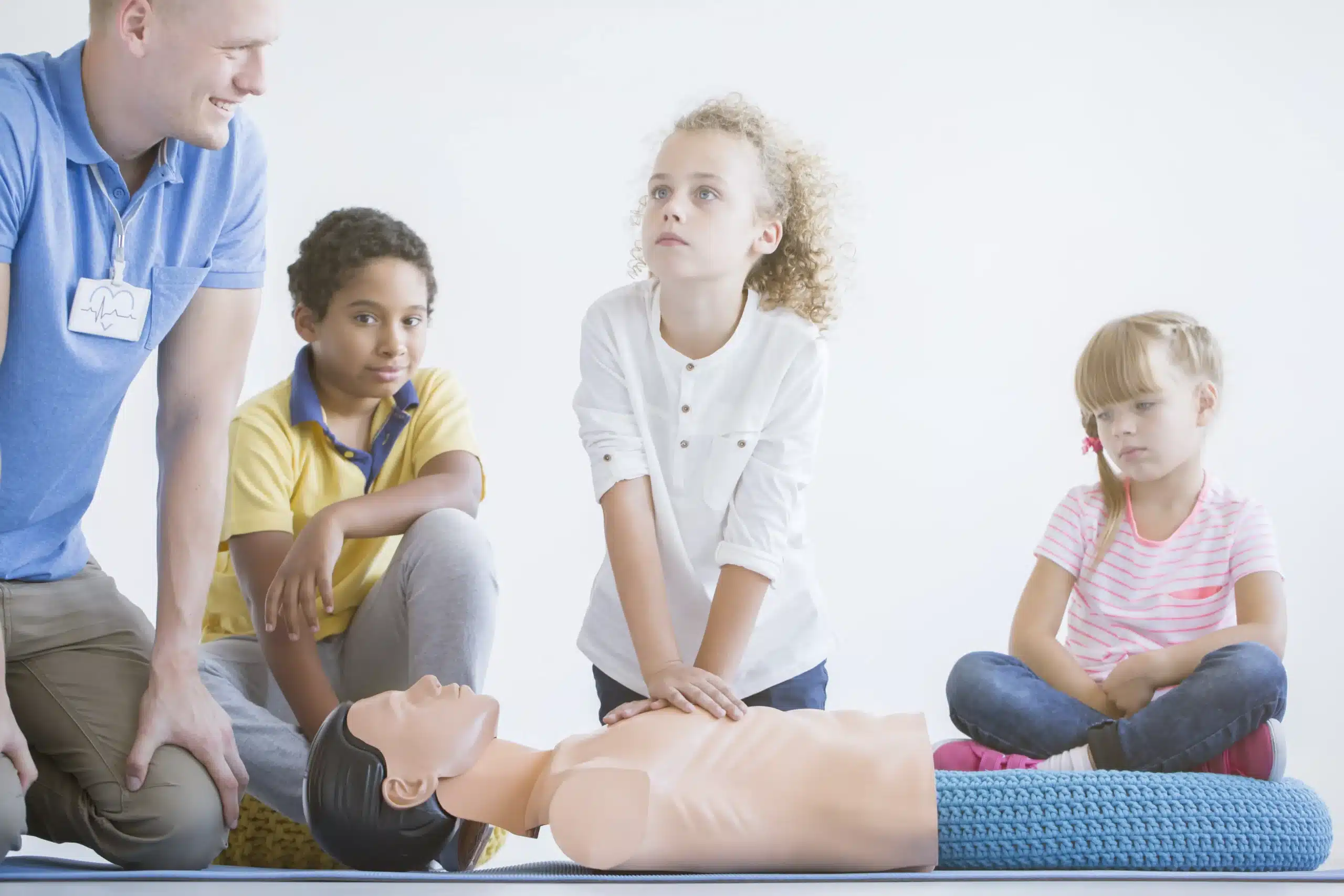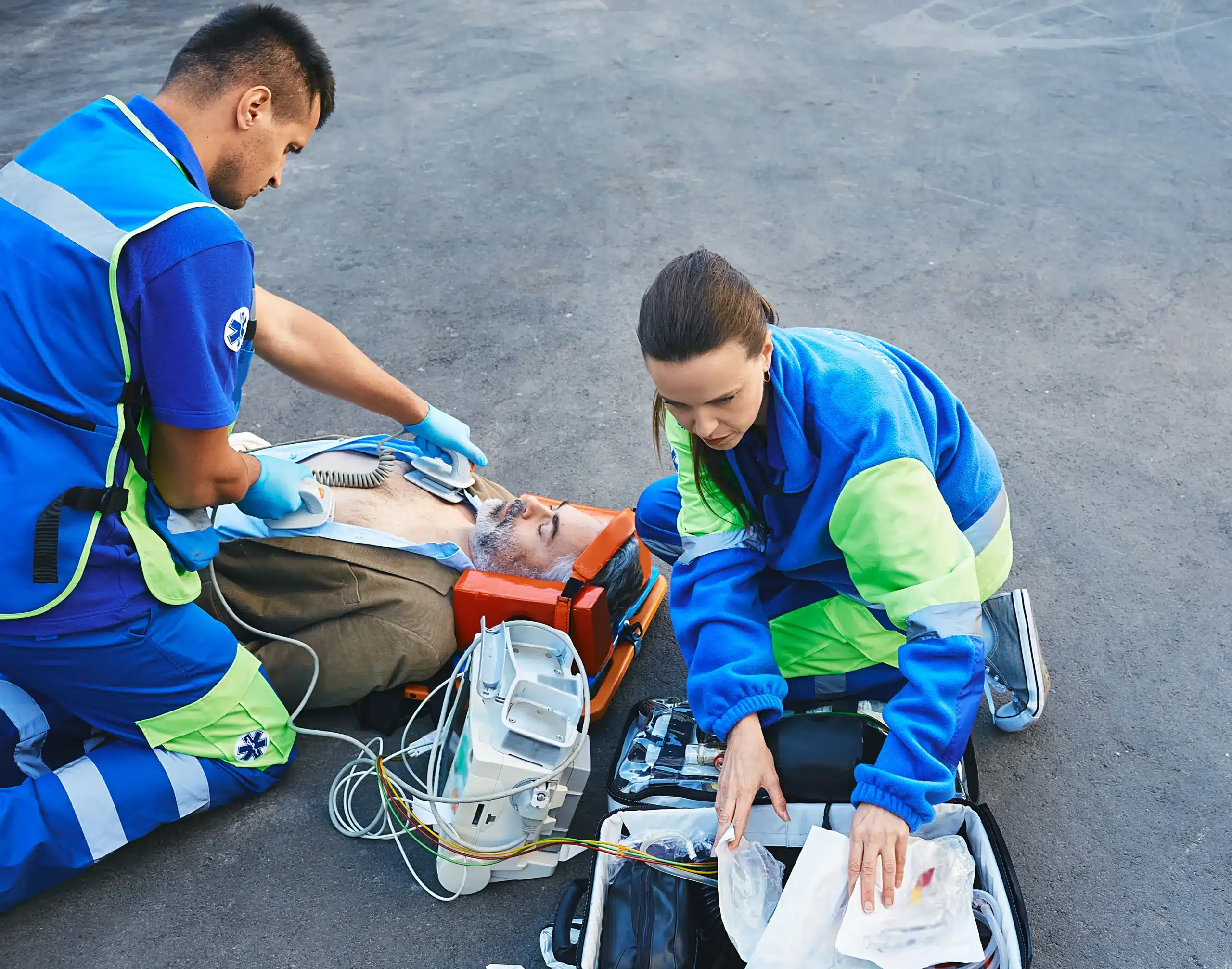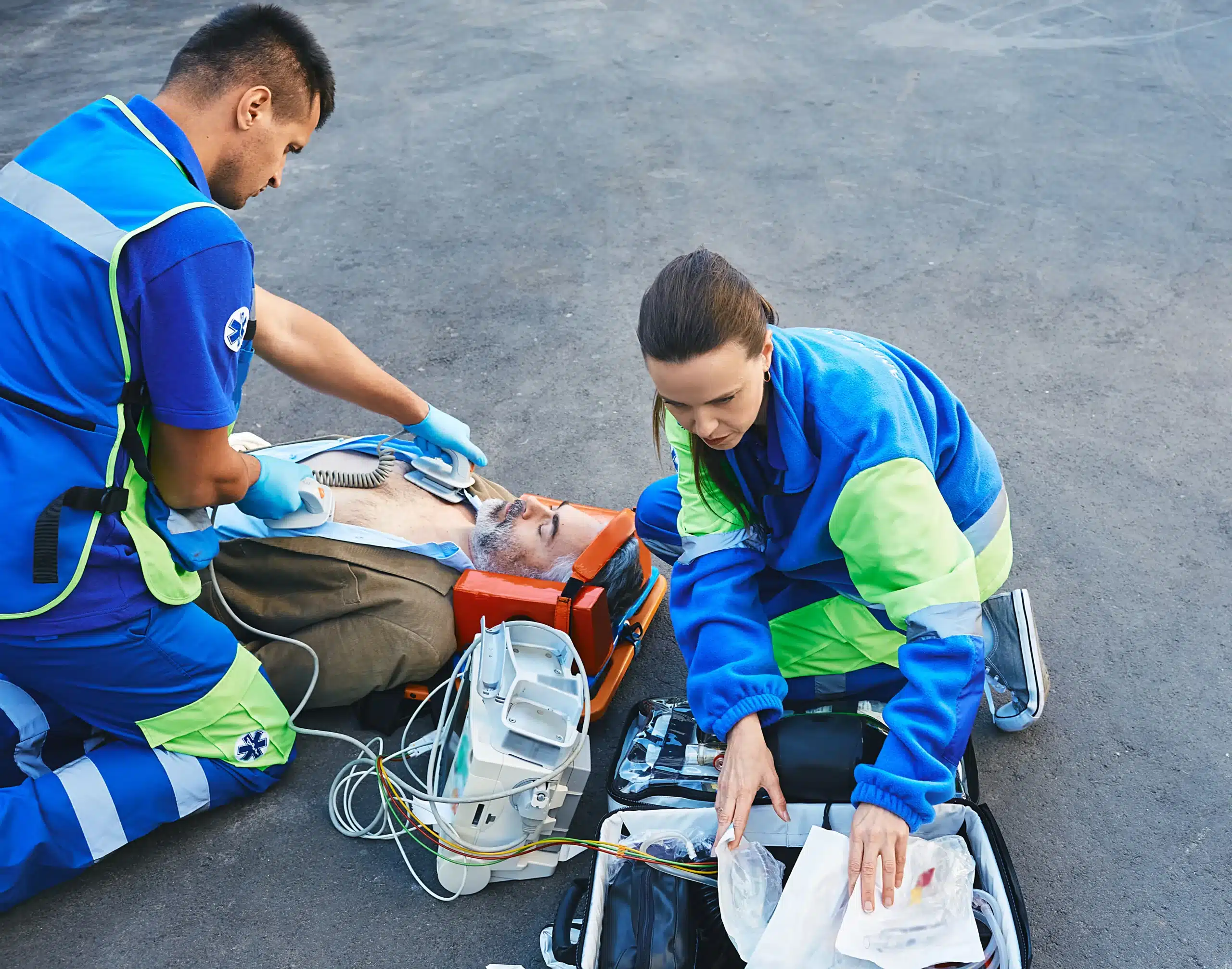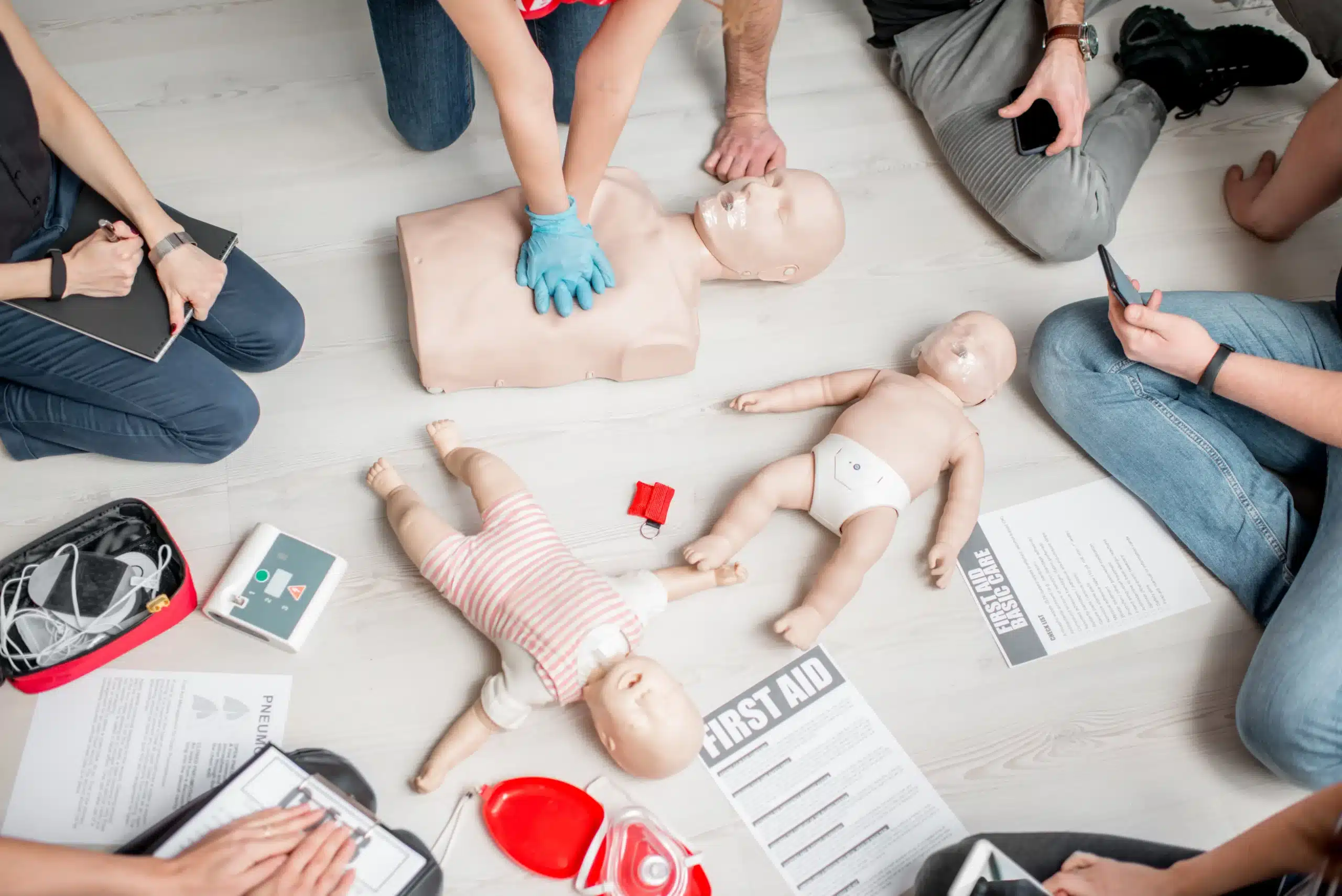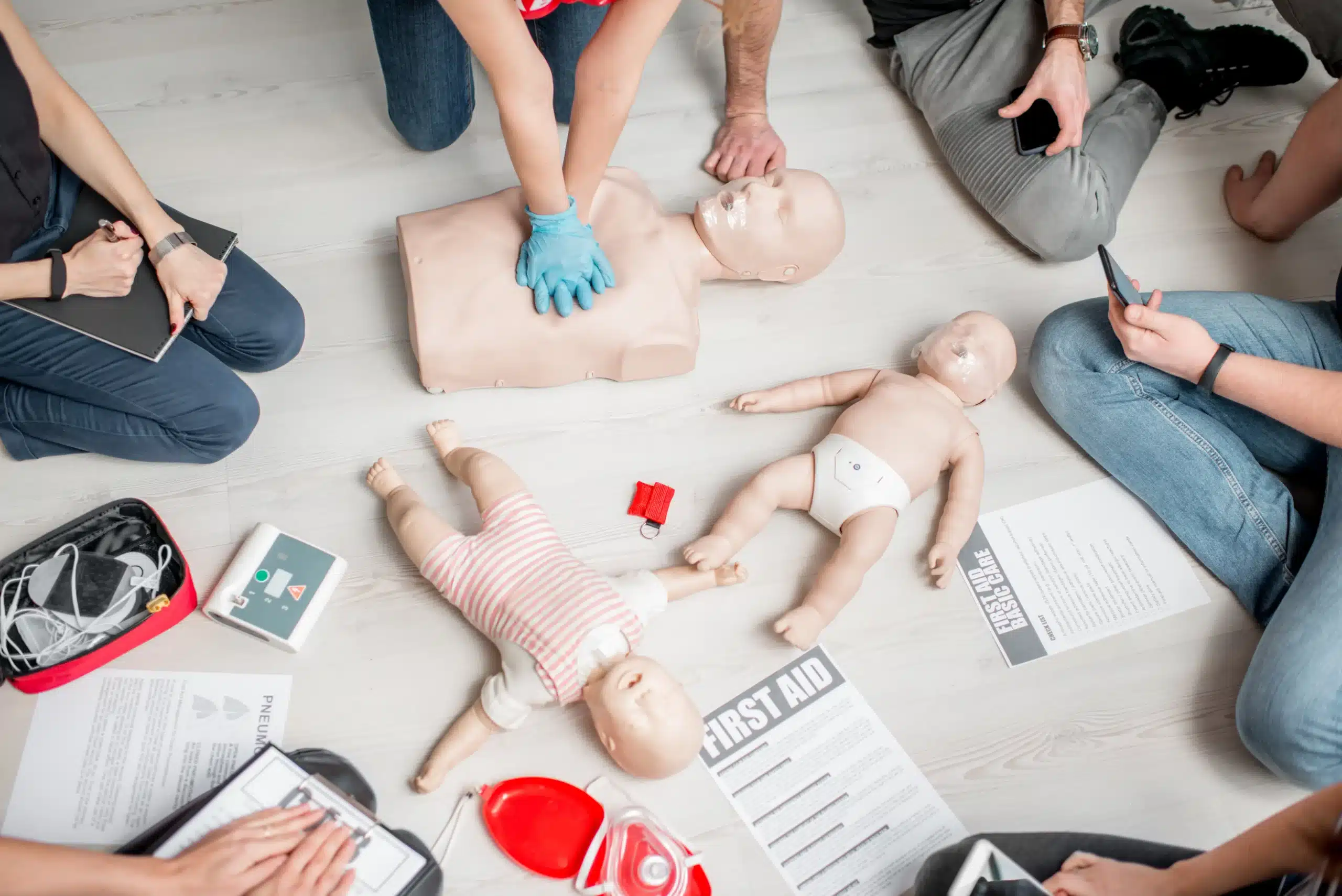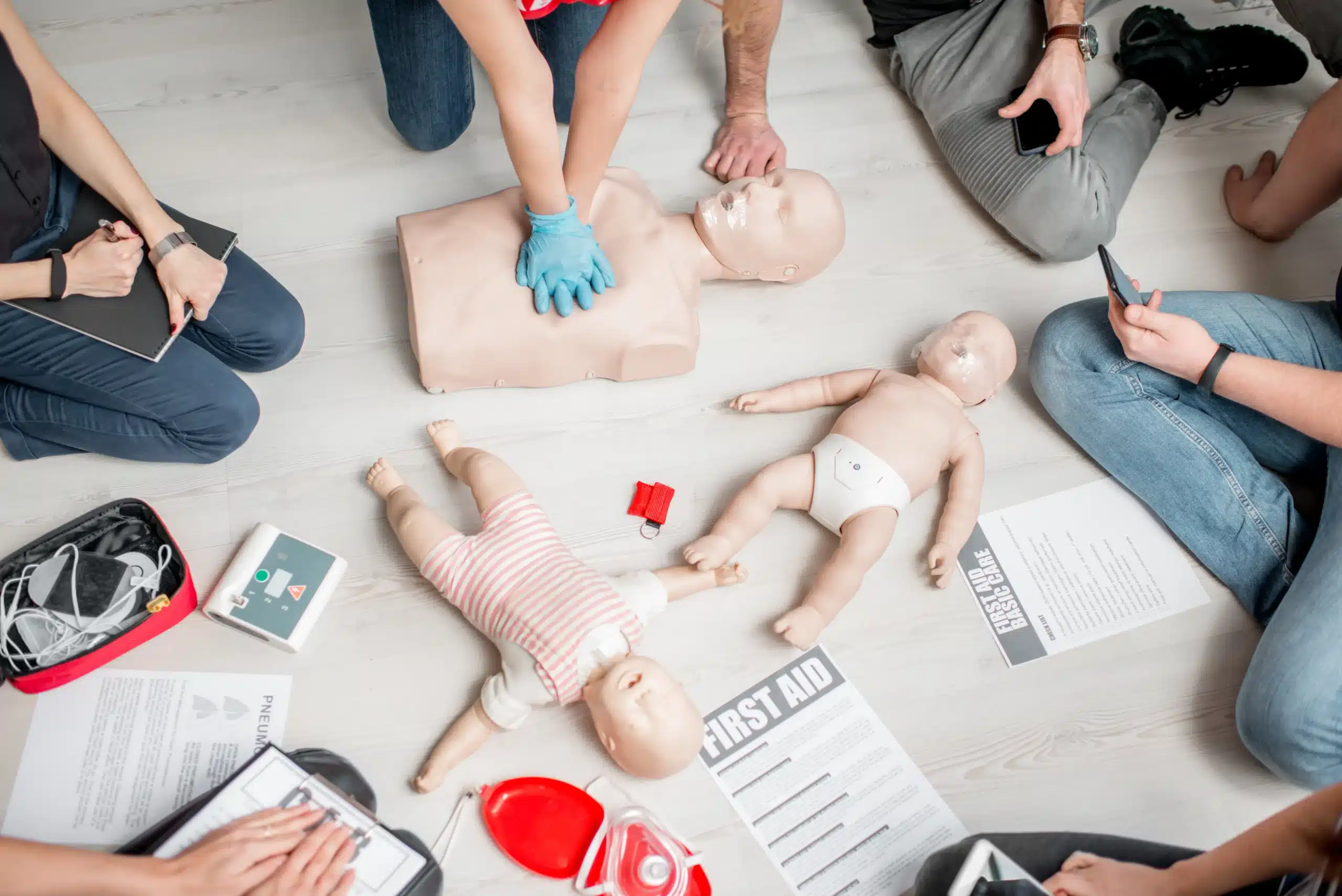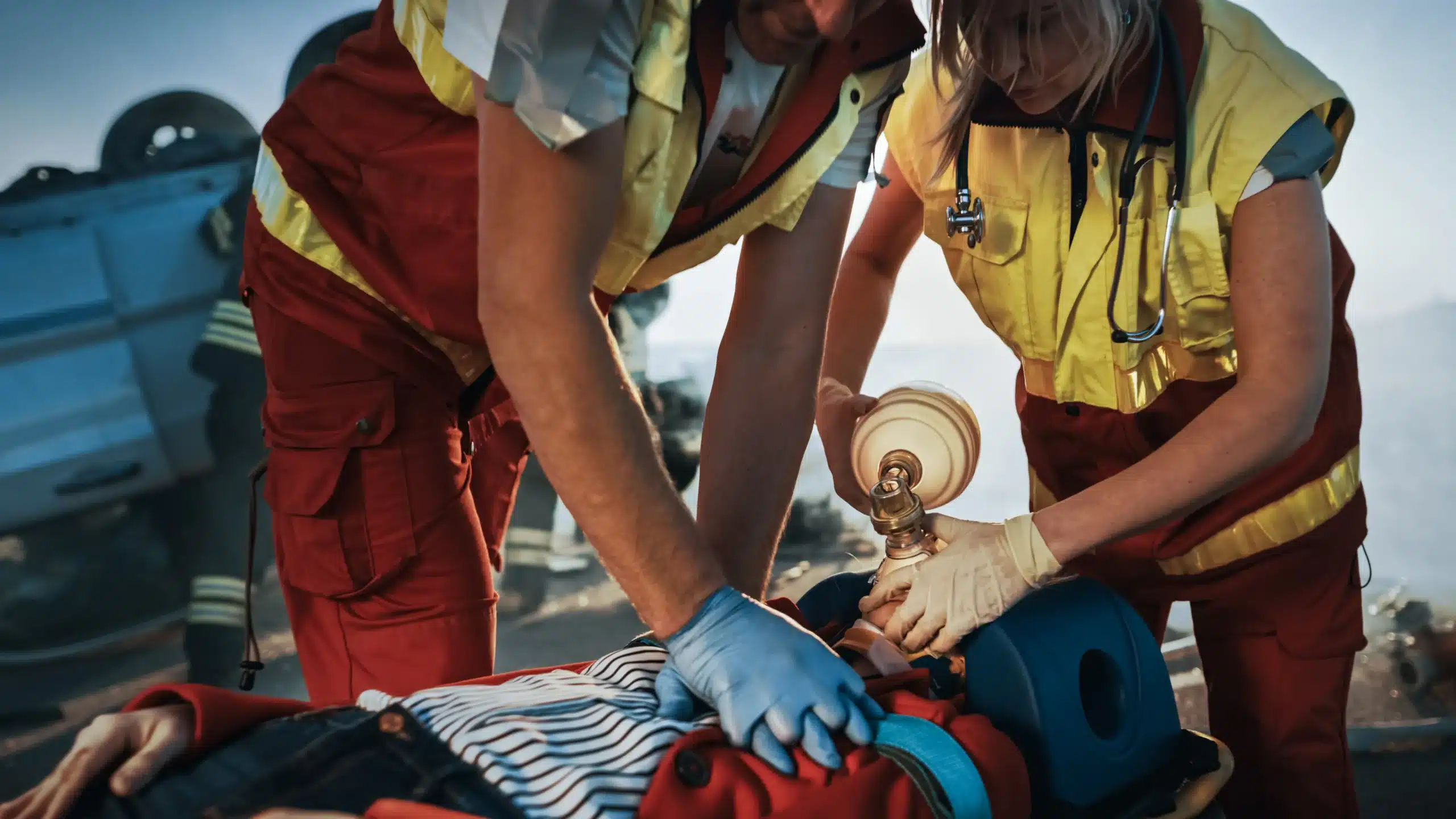Working in healthcare means facing critical situations where quick thinking and advanced skills can make all the difference. If you’re a healthcare professional in Concord, consider pursuing Advanced Cardiac Life Support (ACLS) certification. This in-depth training provides the expertise to manage life-threatening cardiovascular emergencies, going beyond basic CPR to encompass a wider range of life-saving procedures. This article will explore the importance of advanced cardiac life support in Concord, the key skills you’ll gain, and how ACLS certification can benefit your career and improve patient outcomes. We’ll also discuss available training options, costs, and resources to support your learning journey.
Key Takeaways
- ACLS is essential for advanced cardiac care: It goes beyond basic life support, providing healthcare professionals with the skills to manage complex cardiovascular emergencies like strokes and heart attacks.
- Find the right ACLS course for your needs: Consider factors like cost, schedule, and format (in-person, online, or hybrid) when choosing a training provider. Look for programs that offer hands-on practice and simulation to build confidence.
- Stay current with your ACLS certification: Recertification is crucial for maintaining your skills and staying up-to-date with the latest advancements in cardiac care. Take advantage of continuing education opportunities to further your knowledge and expertise.
What is Advanced Cardiac Life Support (ACLS)?
What is ACLS?
Advanced Cardiac Life Support (ACLS) equips healthcare providers with the knowledge and skills to manage life-threatening cardiovascular emergencies. Think strokes, heart attacks, and airway obstructions—situations where seconds count. It goes beyond basic life support, covering advanced procedures and techniques to stabilize patients during these critical events. The goal is to improve patient outcomes and increase the chances of survival. If you’re considering ACLS certification, understanding its core purpose is the first step.
Why is ACLS Crucial for Healthcare Professionals?
For healthcare professionals regularly facing cardiac emergencies, ACLS certification is essential. From emergency room physicians and nurses to paramedics and respiratory therapists, these providers are on the front lines of critical care. ACLS training empowers them to make quick, informed decisions, administer life-saving medications, and work effectively within a team. Even before a patient reaches the hospital, paramedics with ACLS training can take action, significantly impacting survival rates. It’s not just about having the skills; it’s about confident and competent execution in high-pressure situations.
Key Skills and Knowledge Gained Through ACLS Training
ACLS builds upon the foundation of Basic Life Support (BLS), expanding into more specialized areas. You’ll gain expertise in airway management, including advanced techniques for securing and maintaining a patient’s airway. The course also covers the assessment and treatment of various cardiovascular issues, from recognizing abnormal heart rhythms to administering appropriate medications. Effective communication is another crucial component, as ACLS emphasizes teamwork and clear communication during emergencies. Consider reviewing these core areas as you prepare for an ACLS course to ensure you’re ready for the advanced material.
Top ACLS Training Providers in Concord, CA
Finding the right Advanced Cardiovascular Life Support (ACLS) training provider is crucial for healthcare professionals. Here are a few reputable options in Concord, CA to consider:
Safety Training Seminars
Safety Training Seminars, established in 1989, offers a comprehensive range of American Heart Association (AHA) courses. They provide training in BLS, ACLS, PALS, CPR, and First Aid. With classes offered daily in over 60 cities, they make accessing these vital certifications convenient. For healthcare providers in Concord, CA, this widespread availability ensures finding a class that fits your schedule. Learn more about their BLS, ACLS, and PALS courses. Safety Training Seminars also offers an EMSA Child Care Health & Safety course and convenient RQI classes for maintaining your certifications.
CPR Training Center
The CPR Training Center in Concord focuses on delivering high-quality AHA ACLS courses. These courses are designed for healthcare providers involved in patient resuscitation, both in and out of the hospital. They emphasize hands-on training and use real-life scenarios to prepare participants for emergency situations. This practical approach helps build confidence and competence in managing cardiac emergencies. Explore their ACLS course for more details.
Concord CPR Classes
Concord CPR Classes provides comprehensive ACLS certification courses aligned with AHA guidelines. They offer both online and in-person training options, giving healthcare professionals flexibility. The ACLS course includes online learning, skills testing, and a certification card upon successful completion. This blended learning approach offers a convenient path to ACLS certification. Find details about their ACLS course offerings and their low price guarantee on their website.
ACLS Certification: Costs and Formats
Getting ACLS certified is a smart investment in your healthcare career. But how much does it cost, and what training formats are available? Let’s break it down.
Initial Certification Pricing
The initial ACLS certification course typically costs around $250. This usually doesn’t include the course manual, so factor that into your budget. Check with your chosen provider for the most up-to-date pricing. Our ACLS courses offer a low-price guarantee, so you can feel confident you’re getting a great value.
Renewal Course Costs
Already certified and looking to renew? ACLS renewal courses are generally around $190, again, not including the manual. Staying current with your certification is essential for providing the best possible patient care. Our low price guarantee applies to renewal courses as well.
In-Person, Online, and Hybrid Options
We understand that healthcare professionals have busy schedules. That’s why ACLS courses are offered in various formats. You can choose in-person classes, online learning, or a hybrid approach that combines both. Many providers offer flexible scheduling, with classes available throughout the week.
Course Duration and Time Commitment
The initial ACLS course usually takes about 10 hours to complete, while renewal courses are shorter, around 6 hours. This focused training ensures you gain the knowledge and practical skills needed to handle cardiac emergencies effectively. Our RQI program offers another flexible path to maintain your certification.
ACLS Certification: Prerequisites and Requirements
Required Prior Certifications
Before you can dive into Advanced Cardiovascular Life Support (ACLS), you’ll need a current Basic Life Support (BLS) certification. This is because ACLS builds upon the foundational skills taught in BLS. The American Heart Association designs its ACLS courses for healthcare providers involved in resuscitating patients, both in and out of the hospital setting. A solid understanding of BLS is essential for effective participation and can be obtained through our BLS course.
Recommended Knowledge and Skills
ACLS training expands on the skills you learned in BLS. It emphasizes key areas like airway management and recognizing and treating cardiovascular emergencies. You’ll also cover ACLS pharmacology and how to communicate effectively during resuscitation. A good grasp of these topics is key to succeeding in the course and, more importantly, in real-world emergencies. For more information on ACLS, check out our ACLS page.
Prepare for Your ACLS Course
Want to feel confident walking into your ACLS class? Take some time to review the latest ACLS guidelines and algorithms. Concentrate on the most important topics and use online resources to practice. Consider taking practice tests to solidify your knowledge and build confidence before the exam. We offer resources and support to help you prepare—contact us if you have questions.
Get ACLS Certified: The Process
Getting ACLS certified is a straightforward process designed to equip you with the skills to handle cardiovascular emergencies. Here’s what you can expect:
Course Curriculum Overview
The ACLS course curriculum covers a wide range of life-saving procedures for various cardiovascular emergencies, from strokes and cardiac arrest to airway obstructions. You’ll learn the essentials of basic life support (CPR), including high-quality chest compressions and rescue breaths. The course also covers early ACLS management, focusing on rapid assessment and intervention. A significant portion of the training centers around cardiac arrest management, covering topics such as recognizing and treating different heart rhythms. You’ll also explore how to manage ischemic chest pain and acute coronary syndromes, along with stroke recognition and initial care. The course emphasizes understanding and applying ACLS algorithms, which are structured guidelines for managing specific emergencies. Finally, it highlights the importance of team dynamics and effective communication during critical situations. For a closer look at what we cover, review our ACLS course details.
Hands-On Skills Assessment
ACLS training isn’t just about theory; it emphasizes practical application. The course includes hands-on skills practice and simulations to reinforce what you learn. You’ll focus on honing your BLS skills, mastering airway management techniques, and practicing the assessment and treatment of various cardiovascular issues. The training also covers ACLS pharmacology, teaching you about the medications used in these emergencies. Throughout the course, effective communication is emphasized, as it’s crucial for coordinating care within a team. You’ll receive textbooks and other resources to guide you through the material and ensure you’re prepared for real-life scenarios. We also offer an RQI program for those needing certification in high-quality CPR.
Written Examination Details
Once you’ve completed the course and practiced your skills, you’ll take a written exam to demonstrate your understanding. This exam requires a passing score of 80% or higher to receive your ACLS certification. The exam covers the key concepts and procedures taught throughout the course, ensuring you have a solid grasp of the knowledge needed to provide effective care during cardiovascular emergencies. Our low price guarantee makes quality training accessible.
Maintain Your ACLS Certification
Keeping your ACLS skills sharp is crucial for providing the best possible patient care. This section covers how to maintain your certification and stay up-to-date with the latest advancements in emergency cardiac care.
Certification Validity Period
Your ACLS certification is valid for two years. This timeframe ensures that healthcare providers regularly refresh their knowledge and skills, keeping pace with evolving medical practices. Mark your calendar so you know when your recertification is due. Don’t let it lapse!
Renewal Process and Requirements
The recertification process is straightforward and designed to reinforce essential concepts. You’ll need to complete a renewal course before your current certification expires. This refresher course covers core ACLS algorithms, pharmacology, and team dynamics. Recertification not only maintains your credentials but also demonstrates your commitment to providing high-quality patient care. It ensures you’re equipped with the latest knowledge and techniques in advanced cardiac life support.
Continuing Education Opportunities
Beyond recertification, numerous opportunities exist to expand your ACLS knowledge. Consider exploring advanced courses, workshops, and online resources to deepen your understanding and refine your skills. Staying engaged with continuing education demonstrates your dedication to professional growth and ensures you’re prepared for any emergency. Look for opportunities that align with your interests and career goals within the field of advanced cardiac life support. You can also check with your employer for continuing education options they may offer or support.
Overcome Common ACLS Training Challenges
Passing your ACLS certification requires preparation and a focused mindset. These tips can help you address some common hurdles students face.
Manage Your Time Effectively
Time is of the essence during a medical emergency. Effective time management is crucial in ACLS scenarios. You’ll need to assess the situation, make quick decisions, and perform interventions promptly. Practicing under simulated conditions during your ACLS course at Safety Training Seminars will help you build the speed and efficiency needed for real-world evaluations. We design our courses to give you ample opportunity to practice these essential skills.
Master Cardiac Rhythm Interpretation
One of the cornerstones of ACLS training is accurate ECG interpretation. Many students find differentiating between various cardiac rhythms challenging. A solid understanding of ACLS guidelines is essential. At Safety Training Seminars, we emphasize hands-on practice with rhythm recognition to build your confidence and ensure you can make the correct diagnosis and treatment decisions. Reviewing these rhythms before your class can also be beneficial.
Communicate Effectively in Team Scenarios
ACLS scenarios often involve a team of healthcare providers working together. Clear and concise communication is paramount. Breakdowns in communication can hinder effective responses and compromise patient care. Our ACLS courses at Safety Training Seminars incorporate simulations that emphasize teamwork and communication, giving you the practice you need to excel in these high-pressure situations.
Debunking Common ACLS Training Misconceptions
It’s easy to get tripped up by myths about ACLS training. Let’s clear up a few common misconceptions so you can approach your training with confidence.
ACLS: Not Just for Emergency Settings
One frequent misconception is that ACLS training is only for doctors and nurses working in emergency rooms or critical care units. While essential in those environments, ACLS certification equips a broad range of healthcare providers to handle cardiac emergencies, wherever they may occur. Think of situations like a cardiac arrest in a clinic, a respiratory emergency during transport, or a peri-arrest event in a hospital setting outside of the ER. Anyone who might encounter these situations benefits from the advanced skills and knowledge ACLS provides. This can include physicians, nurses, paramedics, respiratory therapists, and other specialized healthcare professionals. Having a team trained in ACLS creates a safer environment for patients in any healthcare setting.
The Importance of Regular Recertification
Another misconception is that once you’re ACLS certified, you’re set for life. Medical knowledge and best practices are constantly evolving. Regular ACLS recertification ensures you stay current with the latest guidelines and techniques in advanced cardiac life support. This maintains your competency and demonstrates your commitment to providing high-quality patient care. Recertification typically involves completing a refresher course every two years, covering any updates to algorithms, medications, or procedures. Think of it as a tune-up for your skills, keeping them sharp and effective.
ACLS vs. Basic CPR: Key Differences
While both are vital life-saving skills, ACLS and Basic Life Support (BLS) CPR have distinct differences. BLS focuses on immediate interventions like chest compressions and rescue breaths to maintain basic life support until more advanced help arrives. ACLS builds upon this foundation, encompassing a broader range of skills and knowledge. It includes advanced airway management, intravenous access, pharmacology for cardiac emergencies, and team dynamics during resuscitation. ACLS training emphasizes a systematic approach to patient assessment, rhythm recognition, and treatment algorithms to manage complex cardiac arrest scenarios. Think of BLS as the first step and ACLS as the next level of expertise in managing life-threatening cardiac events.
Benefits of ACLS Training
Learning Advanced Cardiac Life Support (ACLS) isn’t just about checking a box; it’s about gaining skills and confidence that can transform your career and the lives of your patients. Whether you’re a seasoned healthcare provider or just starting out, ACLS certification offers significant advantages.
Advance Your Healthcare Career
ACLS certification is a valuable asset for healthcare professionals. It demonstrates a commitment to continuing education and a mastery of advanced life-saving techniques. This specialized training can open doors to new career opportunities and enhance your resume, making you a more competitive candidate. Cascade Training Solutions points out that ACLS training is relevant for various medical professionals, including emergency room physicians, anesthesiologists, critical care nurses, and paramedics. Earning your ACLS certification can lead to greater responsibilities, career advancement, and higher earning potential.
Improve Patient Care
ACLS equips you with the skills to provide the best possible care during cardiac emergencies. From recognizing and managing cardiac arrest to understanding airway management and pharmacology, ACLS training empowers you to make quick, informed decisions that can significantly improve patient outcomes. Nurse Theory explains that ACLS education covers advanced life-saving cardiac procedures and technologies, ensuring patients receive the best possible medical care. This translates to better survival rates and a higher quality of care for those experiencing life-threatening cardiac events.
Build Confidence in Emergencies
Responding effectively in a high-pressure emergency requires more than just technical skills; it demands confidence and clear thinking. ACLS training simulations help you develop the critical thinking and problem-solving skills necessary to handle these situations. By practicing various emergency scenarios, you’ll gain the confidence to assess situations quickly, communicate effectively within a team, and implement life-saving procedures efficiently. Regular practice builds confidence and allows you to focus on providing the best possible care, even under pressure. Ultimately, ACLS training empowers you to become a more effective and confident healthcare provider.
ACLS Resources and Support in Concord
Successfully completing your ACLS certification requires preparation and ongoing development. Concord offers several resources to help you study for the exam, maintain your skills, and advance your knowledge.
Study Materials and Practice Exams
ACLS builds upon the foundation of Basic Life Support (BLS), covering airway management, cardiovascular treatment, pharmacology, and effective communication. Given the comprehensive nature of ACLS, expect a rigorous learning experience. A typical ACLS course takes 15–20 hours and dives much deeper than BLS certification. To prepare, take advantage of resources like the ACLS Provider Manual and online resources such as MasterACLS.com. Practice exams, video tutorials, and online forums can also reinforce your understanding of key concepts and algorithms. Creating a structured study schedule and focusing on high-yield topics will help you manage the material effectively.
Post-Certification Support and Refresher Courses
Remember that ACLS certification isn’t permanent. Regular recertification ensures you stay up-to-date with the latest advancements in ACLS. Refresher courses provide opportunities to review core concepts, practice essential skills, and address any knowledge gaps. Staying current with the latest guidelines is critical for providing the best possible patient care. These courses are valuable for all healthcare providers who regularly handle cardiac emergencies.
Hands-On Practice and Simulations
Hands-on practice and simulations are essential for mastering ACLS skills. These experiences allow you to apply your knowledge in a controlled environment, build confidence, and develop critical thinking skills. Simulations often present realistic scenarios that challenge you to adapt and problem-solve, mirroring the demands of real-world emergencies. ACLS goes beyond basic CPR, equipping you with the advanced skills needed to manage complex cardiac events. Look for training programs that incorporate realistic simulations and provide opportunities for feedback and improvement. Mastering these skills through practice can make a real difference in your ability to respond effectively to cardiac emergencies.
Related Articles
- ACLS Courses in Walnut Creek: Your Complete Guide – Walnut Creek CPR Classes
- HeartCode ACLS Walnut Creek: Your Certification Guide – Walnut Creek CPR Classes
- ACLS HeartCode Pleasant Hill: Your Certification Guide – Walnut Creek CPR Classes
Frequently Asked Questions
What exactly does ACLS cover that goes beyond basic CPR?
ACLS training builds upon basic CPR by adding advanced airway management techniques, the use of intravenous medications, and a deeper understanding of cardiac rhythms and how to treat them. It also emphasizes teamwork and communication during emergencies. It’s a more comprehensive approach to managing complex cardiovascular issues.
How can I find a reputable ACLS training provider in Concord?
Look for providers offering courses aligned with American Heart Association guidelines. Check for accreditation, instructor qualifications, and reviews from past students. Consider factors like course format (in-person, online, or hybrid), scheduling flexibility, and cost. Safety Training Seminars is a great place to start your search.
If I’m already BLS certified, how much more time and effort is involved in getting ACLS certified?
While BLS certification is a prerequisite, ACLS training delves deeper into cardiovascular care. Expect to dedicate additional time for studying and practicing the more advanced skills and algorithms. The initial ACLS course typically requires around 10-15 hours, while renewal courses are shorter.
How often do I need to renew my ACLS certification, and what’s involved in the renewal process?
ACLS certification is valid for two years. Renewal involves completing a refresher course that covers updated guidelines and reinforces essential skills. This ensures you stay current with the latest advancements in cardiac care.
What if I struggle with certain aspects of ACLS training, like ECG interpretation or managing emergencies under pressure?
Many students find certain aspects of ACLS challenging. Don’t hesitate to seek extra help from your instructor or utilize additional resources like practice exams and online tutorials. Focus on understanding the underlying principles and practice regularly to build your confidence.
